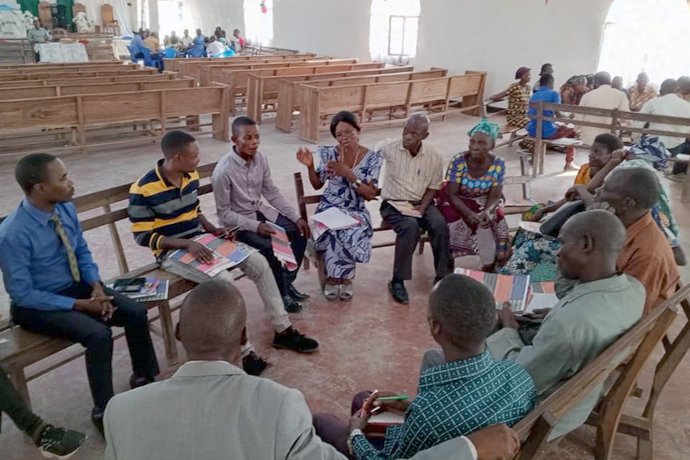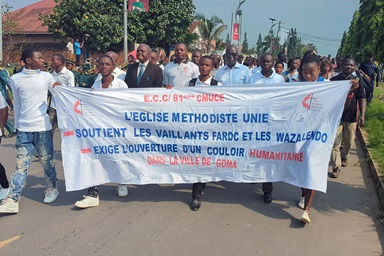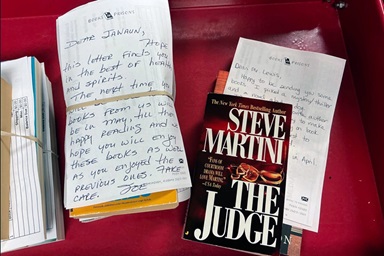
Key points:
- With a goal of strengthening peace and cohabitation among the Congolese, leaders in two ecclesiastical districts received training.
- Civic education leaders learned about the Congolese electoral system, the rights and duties of citizens, and the fight against violence and hate speech.
- “This training is very important to us,” said Mutombo wa Maloba Elizabeth, vice president, Tanganyika Conference United Methodist Women in Faith.
Five months before elections in the Democratic Republic of the Congo, The United Methodist Church in the North Katanga Episcopal Area is conducting civic education to strengthen peace and cohabitation among the Congolese people.
The church is also working to prevent hate speech before, during and after the country's upcoming elections in the digital and technological age.
In July 2023, the church trained civic education leaders in the ecclesiastical districts of Manono and Kalemie in the Tanganyika Annual Conference.
According to Manono training facilitator Nkumwimba Wa Mwamba Valeri, the initiative was developed by Bishop Mande Muyombo, North Katanga Episcopal Area, as a unifying and peacemaking effort.
The initiative aims to strengthen peace and cohabitation between Congolese, and to make citizens aware of their civic rights and duties. Nkumwimba declared that civic education is essential for a healthy democracy.
“Every citizen has a duty to know their rights and duties, and to participate in the democratic process,” he said. “That's why we're committed to training leaders in civic education.”
Subscribe to our
e-newsletter
Civic-education leaders learned about the Congolese electoral system, the rights and duties of citizens, and the fight against violence and hate speech.
According to Nkumwimba, people from Manono to Kabalo — two localities located in the DRC's Tanganyika province — have abandoned their villages and fled due to the conflict between the Twa and Buntu ethnic groups.
Marcel Muzinga, a lawyer in Kalemie and a trainer for the Independent National Electoral Commission, stressed the importance of citizens knowing their rights and duties.
“Everyone has rights and duties to fulfill during the election period,” he said. “It's important to inform yourself about the electoral process and cast an informed vote.”
In a context of false peace due to the ethnic conflict in Manono, Muzinga said, “the women of Manono are strong and are encouraged to respect their husbands and look after their children, despite the invitation to participate in local politics.”
Catholic priest Alain Kabange focused on the participation of women and young people in political life. “Women and young people are often marginalized in the political process,” he said. “It's important to make them aware of their civic rights and duties and encourage them to get involved in politics.”
The denomination’s work in this field was welcomed by local Congolese government authorities.
“This training is very important to us,” said Mutombo wa Maloba Elizabeth, vice president, Tanganyika Conference United Women in Faith. “It has enabled us to learn about our civic rights and duties, and to understand how to participate in the democratic process.”
Musau is director of communications for the North Katanga Episcopal Area.
Press contact: Julie Dwyer, editor-in-chief, [email protected] or 615-742-5469. To read more news from The United Methodist Church, subscribe to our free daily or weekly Digests.



